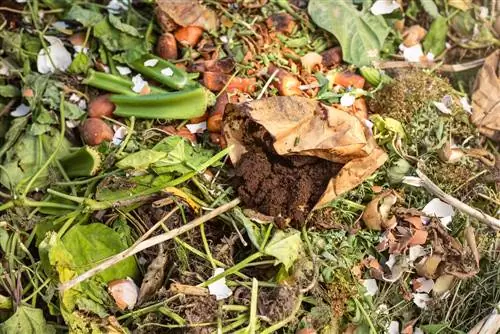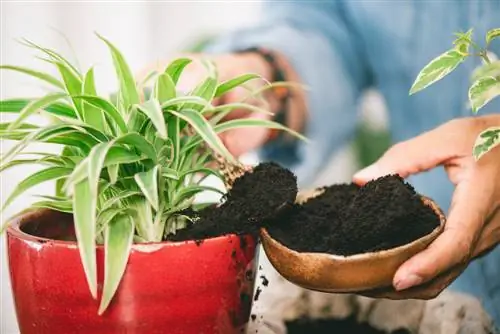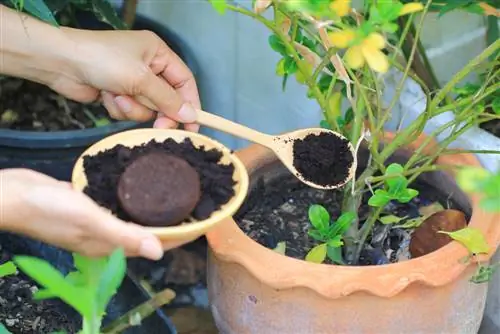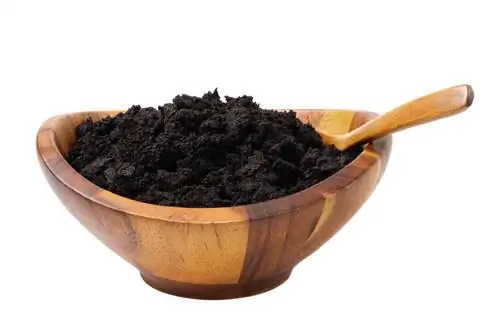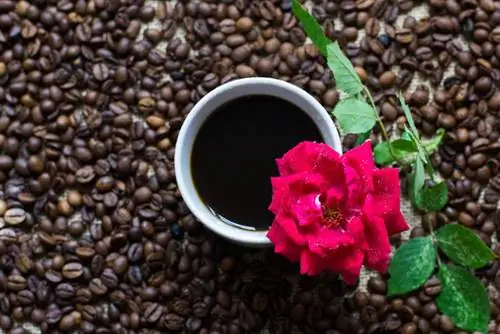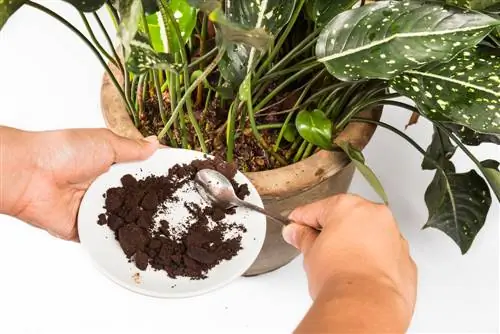- Author admin leonars@hobbygardeners.com.
- Public 2023-12-16 16:46.
- Last modified 2025-01-23 11:21.
Coffee grounds have long been considered a very good fertilizer for the soil. For this reason alone, it is a shame if the coffee grounds that are produced every day are put in the garbage can and not in the compost. Why is coffee so good for compost?
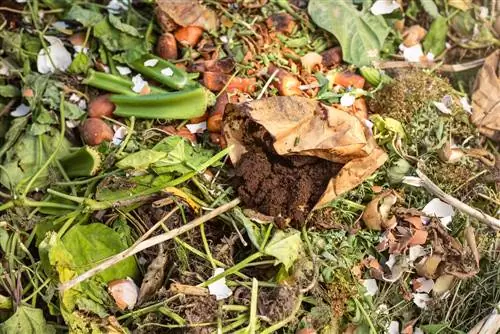
Why are coffee grounds good for compost?
Coffee grounds are ideal for compost because they contain nutrients such as phosphorus, potassium, nitrogen and tannic acid. It loosens the substrate, feeds earthworms and is particularly suitable for plants that like slightly acidic soil, such as roses, cucumbers, tomatoes and zucchini.
Always put coffee grounds in the compost heap
You should always compost coffee grounds (without additives) if you have the opportunity to do so. He
- enriches the soil with nutrients
- loosens the substrate
- feeds earthworms
That's why coffee grounds are ideal for compost
Coffee contains a number of nutrients that are also found in commercial fertilizers:
- Phosphorus
- Potassium
- Nitrogen
- tannic acid
Nitrogen promotes the formation of leaf green, phosphorus stimulates flower growth and fruit ripening, while potassium strengthens cell structure.
Coffee grounds in compost are particularly suitable for plants that like slightly acidic soil. Cucumbers, tomatoes and zucchini also appreciate fertilizer made from coffee grounds. The only thing you shouldn't use is seedlings with this fertilizer.
Fertilize roses with coffee grounds
You don't necessarily have to put the coffee grounds in the compost. You can also simply sprinkle it under your roses. Particularly good fertilizer is made if you also mix it with banana peels.
Do not compost coffee grounds wet
If coffee grounds are added to the compost too wet, they will mold very quickly. This also applies when composting large quantities.
Let the coffee grounds dry out on a plate beforehand so that they become nice and crumbly. Then it can be mixed better with other materials such as ash, banana peels and other compost materials.
You can also compost paper coffee filters. Of course, other coatings such as capsules are not allowed in the compost!
Note PH value
Coffee grounds slightly acidify the soil. Compost with a lot of coffee grounds is therefore not particularly suitable for plants that don't like it so acidic. However, you can ensure that the soil does not become acidic by adding lime.
Check the pH value (€64.00 on Amazon) of your soil by having a soil sample examined in the laboratory. Then you are on the safe side.
Tip
Coffee grounds are also a very good way to deter cats. Spread around the sandpit, it keeps the four-legged friends away. Many species of snails also don't like coffee.

